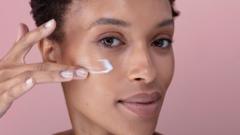Collagen is the most abundant protein in the human body, serving as a primary building block for skin, bones, muscles, tendons, ligaments, and other connective tissues. It provides structural support, strength, and elasticity. As individuals age, typically starting in their mid-twenties, the body’s natural production of collagen begins to decline. This gradual decrease contributes to common signs of aging, such as wrinkles, sagging skin, and less flexible joints. In response, a wide array of products has emerged, promising to replenish these diminishing natural supplies.
Many people choose to ingest collagen in the form of dietary supplements. These often come as powders, designed to be mixed into beverages, or as pills. These products typically contain hydrolyzed collagen, also known as collagen peptides, which are smaller protein fragments thought to be more easily absorbed by the digestive system. The theory is that once absorbed, these peptides can signal the body to increase its own collagen production or provide the necessary amino acid building blocks. Advocates claim benefits ranging from improved skin hydration and elasticity to better joint health and stronger hair and nails. Scientific research into the effectiveness of oral collagen supplements is ongoing, with some studies showing promising results for certain aspects of skin health and joint comfort, though more extensive, long-term research is still needed to fully understand their efficacy and mechanisms of action.
Another method of collagen supplementation involves direct injection. Dermal fillers, which can contain collagen derived from animal sources or synthetic compounds that stimulate collagen production, are administered by medical professionals to target specific areas. These injections are primarily used for cosmetic purposes, such as reducing the appearance of wrinkles, plumping lips, or restoring volume to facial contours. Unlike ingestible forms, injected fillers provide immediate, localized results by directly adding volume beneath the skin. However, these effects are temporary, typically lasting several months to over a year, depending on the product and individual.
Topical applications, such as creams, serums, and lotions containing collagen, represent a third popular approach. These products are mass-marketed with the promise of firming skin and reducing signs of aging when applied directly to the surface. However, the scientific consensus generally indicates that collagen molecules are too large to effectively penetrate the outer layers of the skin (epidermis) and reach the deeper dermal layers where new collagen is produced. While topical collagen products may offer surface-level hydration and temporarily improve the skin’s appearance, their ability to significantly boost the body’s internal collagen production or repair deep structural damage is largely considered limited. The visible effects are more often attributed to the moisturizing properties of these formulations rather than direct collagen integration.
The question of whether these various collagen interventions “work” depends largely on the method and the desired outcome. While injected fillers offer direct and immediate, albeit temporary, cosmetic enhancement, and topical products provide surface hydration, the long-term effectiveness of oral collagen supplements in stimulating significant, widespread internal collagen regeneration continues to be an area of active scientific investigation with varying degrees of supportive evidence.



